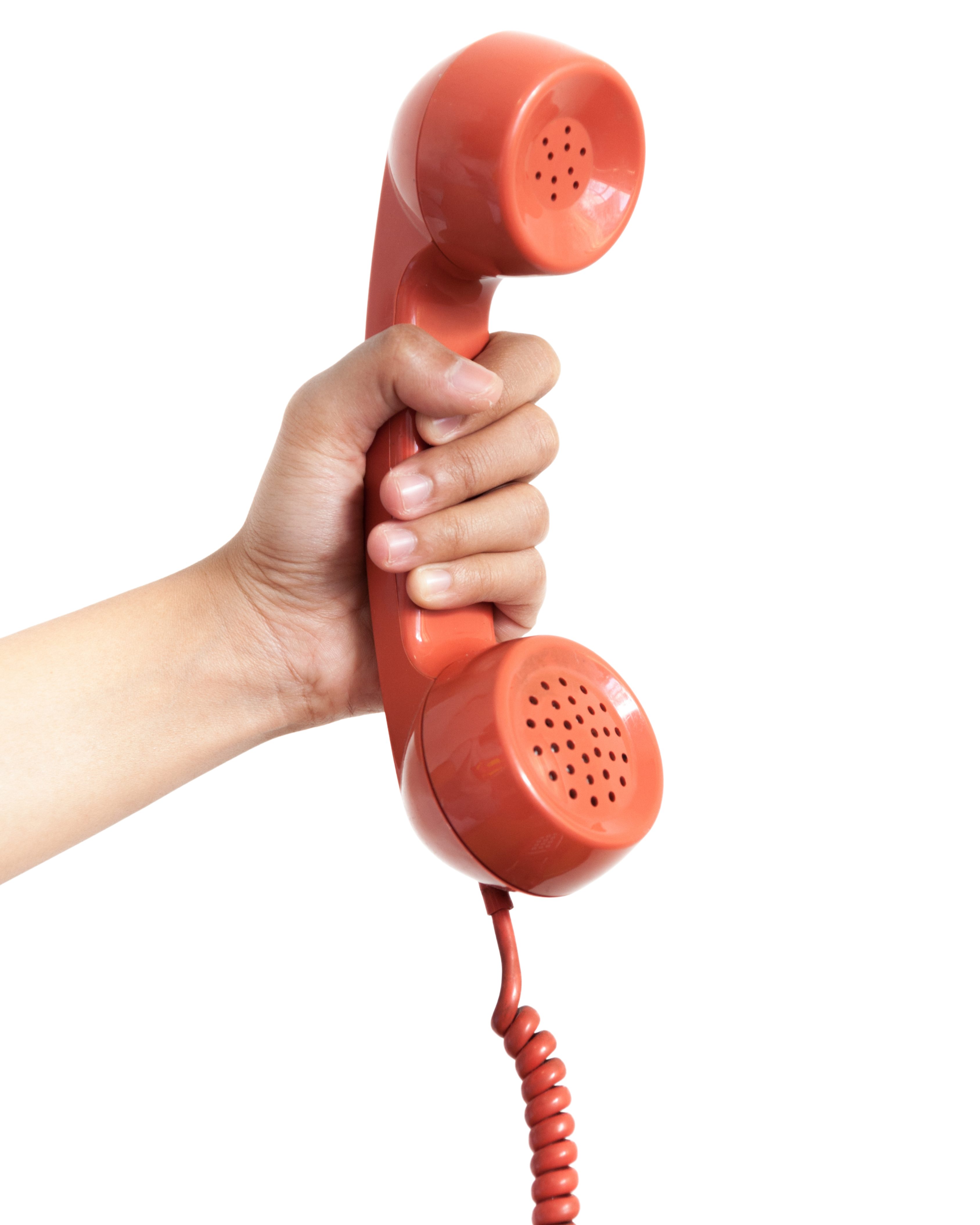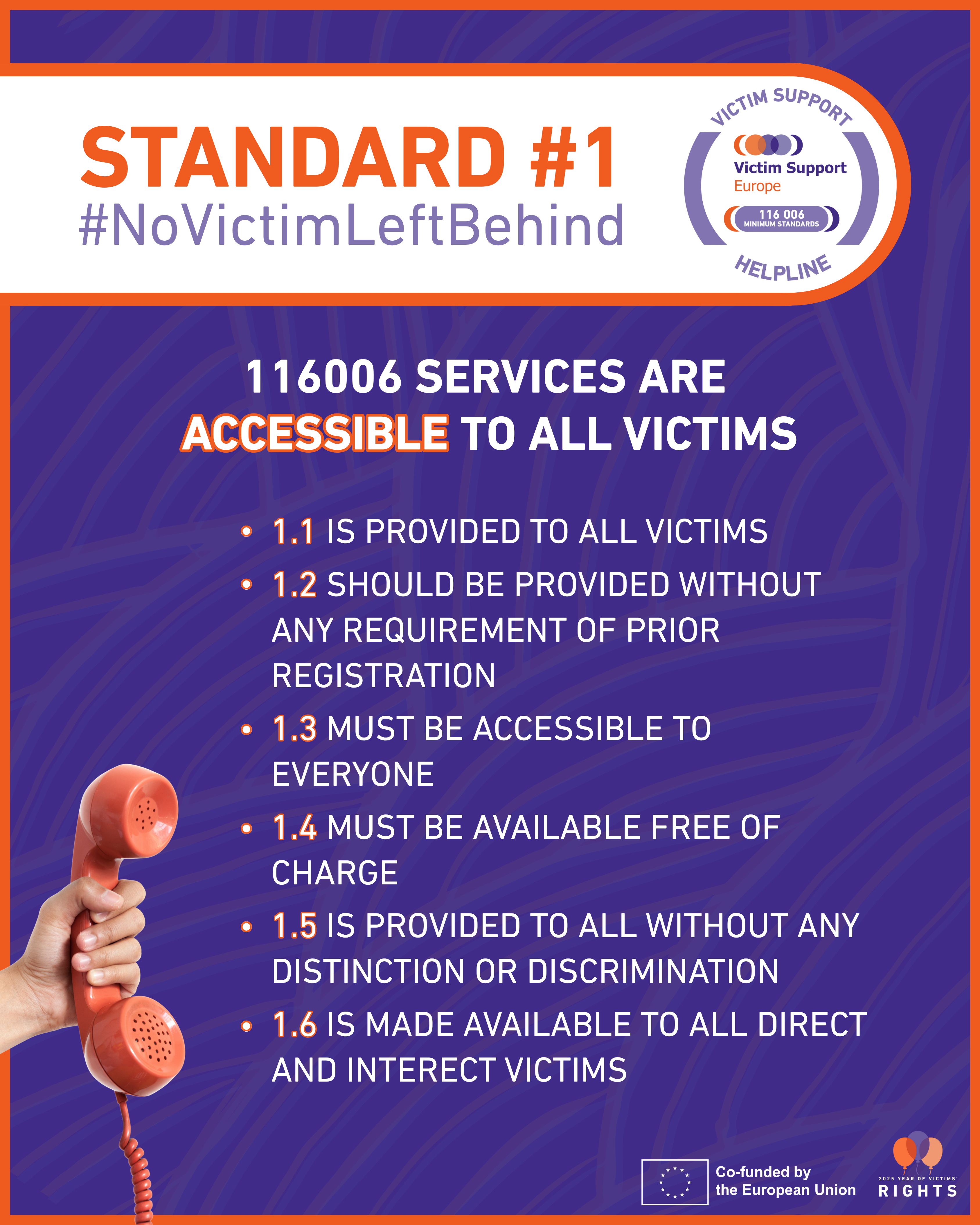Help us reach our goal of 1,000 signatures.
We need your help to strengthen the call, and to show policy makers the real scale of demand for accessible, high-quality victim support across the EU.

We need your help to strengthen the call, and to show policy makers the real scale of demand for accessible, high-quality victim support across the EU.
-
When someone becomes a victim of crime in the EU, they should know that help is only a free phone call away — and that the help they receive will be reliable, confidential, and of the same high quality wherever they live in Europe.
Around the world, emergency numbers like 911 in the US, established in 1968, and 112 across Europe, introduced in 1991, have provided critical, immediate assistance in emergencies for decades, proving the power of accessible helplines. In Australia, Lifeline has been offering 24/7 crisis support for mental health and suicide prevention since 1963, while New Zealand’s 1737 counselling service, launched in 2017, provides free, confidential phone and text support. In Asia, Befrienders Worldwide began running helplines in the 1960s and now operates in multiple countries, offering vital emotional support. In Latin America, Argentina’s Línea 144, created in 2009, provides essential assistance to victims of gender-based violence.
These long-established helplines demonstrate how accessible support services can deliver lifesaving help and emotional guidance, benefiting society for decades. Their success underlines the urgent need for harmonised, high-quality victim support services like the 116006 victim helpline across the EU. However, consistent, dependable help through 116006 is still not guaranteed everywhere. That’s why Victim Support Europe, along with its member organisations running 116006 helplines, has been working to set clear minimum standards based on the Victims’ Rights Directive.
The “116006 Helpline: One Number. One Standard. Equal Support for Every Victim” campaign works toward a future where helplines operate in all EU countries and all 116006 helplines across the 27 member states follow the same standards, so that no victim is left behind.

Yes!
Learn more here: https://www.weisser-ring.at/
No! Sign the pledge for the helpline implementation!
Learn more about the helpline here!
No! Sign the pledge for the helpline implementation!
Learn more about the helpline here!
Yes!
Learn more:
No! Sign the pledge for the helpline implementation!
Learn more about the helpline here!
Yes!
Learn more:
Yes!
Learn more:
Yes!
Learn more:
Yes!
Learn more:
Yes!
Learn more:
Yes!
Learn more:
No! Sign the pledge for the helpline implementation!
Learn more about the helpline here!
No! Sign the pledge for the helpline implementation!
Learn more about the helpline here!
Yes!
Learn more:
No! Sign the pledge for the helpline implementation!
Learn more about the helpline here!
Yes!
Learn more:
No! Sign the pledge for the helpline implementation!
Learn more about the helpline here!
No! Sign the pledge for the helpline implementation!
Learn more about the helpline here!
Yes!
Learn more:
Yes!
Learn more:
No! Sign the pledge for the helpline implementation!
Learn more about the helpline here!
Yes!
Learn more:
No! Sign the pledge for the helpline implementation!
Learn more about the helpline here!
No! Sign the pledge for the helpline implementation!
Learn more about the helpline here!
No! Sign the pledge for the helpline implementation!
Learn more about the helpline here!
No! Sign the pledge for the helpline implementation!
Learn more about the helpline here!
Yes!
Learn more:
In 2023, Victim Support Europe and 40 victim support organisations called on the European Commission, Council, and Parliament to make the 116 006 helpline mandatory in all EU Member States and to provide the necessary EU funding to make it work properly everywhere.
In 2024, the European Council agreed on a proposal to update the Victims’ Rights Directive, confirming the need for every Member State to establish an EU-wide, harmonised helpline accessible through the 116 006 number.
Now, in 2025, Victim Support Europe is taking the next step: making sure that this basic service truly works equally well for everyone. To do that, we have released an updated Minimum Standards for 116006 Helplines publication, setting out clear expectations for how every helpline should operate, which was based on the Victims’ Rights Directive and best practice from across Europe.
The minimum standards ensure that victims can reach out for help at their own time and pace — by phone, online chat, video call, or other distance support. They help victims in rural areas or those who cannot easily reach an office get the same level of help as everyone else.













Victim Support Europe’s “116006 Helpline” campaign calls on all actors across Europe to ensure that every victim of crime in every EU Member State can reach help simply by dialling 116006, and that the help they receive meets the same high-quality standards everywhere.
Set up the 116006 helpline in your country — and do it right.
Establishing the helpline is not optional. It is a necessary service that provides victims with information, care, and emotional support when they need it most.
By implementing the 116006 number, governments:
Setting up the helpline according to VSE Minimum Standards ensures quality and consistency: professional staff, confidentiality, independence, and compassion. It is an opportunity to build a lasting, visible achievement for citizens — a symbol of care and solidarity.
The EU has a crucial role in turning this vision into reality.
The 116006 helpline is not a luxury — it is a basic guarantee of dignity, safety, and justice for all Europeans.
Civil society and VSE members are essential partners in making 116006 a success.
Working hand in hand with governments, they can:
Together, we can ensure that 116006 remains a trusted symbol of care and solidarity throughout Europe.
Victims could be any one of us.
Whether facing a robbery while travelling, online fraud, hate crime, or gender-based violence, no one should be left to cope alone.
The 116006 helpline guarantees that help is only a call away — free, confidential, and available wherever you are in the EU.
By supporting this campaign, citizens can help make sure that no victim is left behind.
The organisations listed here have endorsed the pledge by confirming signatures from their teams or leadership, demonstrating their commitment to equal, high-quality victim support across Europe.
Organisations endorsing this pledge are likely Victim Support Europe members that provide direct services to victims. Based on the available data from our 2024 Annual Report, the endorsements shown here represent thousands of victims served each year.
Establishing and properly resourcing 116006 helplines in every Member State is not only a policy duty — it is a moral obligation.
By raising awareness with hashtags like #NoVictimLeftBehind and #116006HelplineStandards, the campaign highlights a simple truth:
One number. One standard. Equal support for every victim.
We need your help to strengthen the call, and to show policy makers the real scale of demand for accessible, high-quality victim support across the EU.
-
This version of the Minimum Standards for 116006 Helplines includes the full introduction, aims, visions, and detailed definitions for a deeper understanding.
This version of the Minimum Standards for 116006 Helplines is condensed to show the highlights and key points in a quick, easy overview through visuals.
For press inquiries, please contact:
Marina Kazakova
Junior Communications Manager
m.kazakova@victimsupporteurope.eu
0032(0)23 46 04 55
For policy-related inquiries, please contact:
Efthymis Antonopoulos
Junior Policy Manager
e.antonopoulos@victimsupporteurope.eu
0032(0)23 46 04 55
Since its creation in 2009, the European 116 006 Helpline for Victims of Crime is only available in 13 EU Member States. Neither Belgium, Bulgaria, Cyprus, Greece, Hungary, Italy, Lithuania, Luxembourg, Malta, Poland, Romania, Slovakia, Slovenia nor Spain offer their citizens a 116 006 helpline.
In a joint statement, Victim Support Europe and 40 victim support organisations call on the European Commission, Council and Parliament to make the 116 006 helpline a requirement in all EU States, and to support Member States through EU funding, following the approach for the missing children helplines.
Proper funding for new and existing helplines is essential. In 2022, EU Commissioner for Justice Didier Reynders and Eric Dupond-Moretti, Keeper of the Seals, French Minister for Justice called on all EU Member States “to make use of the 116 006 helplines for the benefit of their citizens, in the conviction that it is a necessary tool for providing information and care to victims”.
Victim Support Europe is therefore launching an Action Week that will start on 11 April 2023 at 09:00 (CEST). We provide a campaign toolkit that outlines how VSE members and partners can support the 116 006 Helpline Action Week in order to call on the European policy makers to make the 116 006 helpline a requirement in all European Union Member States.
The 1-week campaign will be launched on 11 April 2023 at 09:00 (CEST) and the contents of this webpage / toolkit are embargoed until then. The Action Week is a key part of the VSE’s advocacy work aiming at advancing victims’ laws and policies both on the EU and national levels.
Are you joining our campaign? You can find the campaign guideline and assets below.
DISCLAIMER: The contents of this publication are the sole responsibility of Victim Support Europe and do not necessarily reflect the opinion of the European Union.
 © 2026. All rights reserved. Privacy Policy.
© 2026. All rights reserved. Privacy Policy.
